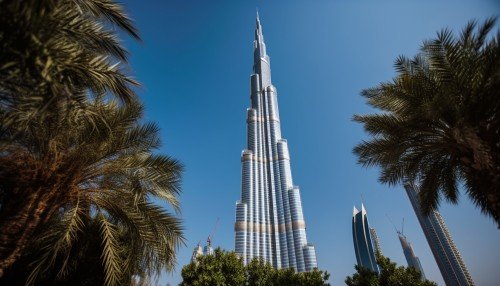
Construction is one of the oldest and most essential industries in human history. From ancient temples to modern skyscrapers, the built environment reflects our cultures, ambitions, and technological progress. But some projects don’t just serve their purpose, they redefine the rules.
In this article, we explore a selection of groundbreaking construction projects that have truly changed the industry forever. From how we design and build to how we collaborate across borders and languages these projects didn’t just break ground; they broke barriers.
1. The Burj Khalifa – Redefining Vertical Living
When the Burj Khalifa was completed in Dubai in 2010, it became the tallest structure in the world at over 828 meters. But this mega-skyscraper wasn’t just about height it redefined what was structurally and logistically possible in construction.
The project demanded innovations in materials, wind resistance, and workforce coordination. Multiple international companies contributed, and thousands of workers from dozens of countries collaborated on-site. The need for seamless multilingual communication was critical highlighting the importance of language service providers like PoliLingua, especially when documentation and safety procedures had to be shared in different languages, including German, English, Hindi, and more.
2. Elbphilharmonie Hamburg – When Architecture Becomes Art
The Elbphilharmonie in Hamburg, Germany, is not only a cultural icon but also a lesson in engineering innovation. Built atop a historic warehouse, the glass structure is a marvel of acoustic design, combining heritage with modernity.
Its construction challenged traditional building methods due to the complexity of its curved glass façade and the extreme acoustic requirements of the concert hall. It also marked a shift in how Germany approached public architecture where form and function blend in a way that captures international attention.
Global collaboration was key, and so was communication. For international teams working on-site in Germany, precise translation-services">translation and localization of architectural plans, permits, and compliance documents were critical. That’s where services like PoliLingua DE (Germany) step in, ensuring that construction documents, contracts, and technical specs are clearly translated and culturally adapted, especially in a country where regulatory standards are rigorous and precise.
3. The Channel Tunnel – Engineering Beneath the Sea
Connecting England and France, the Channel Tunnel (or "Chunnel") is one of the most ambitious transportation construction feats of the 20th century. It required tunneling over 30 miles under the sea while aligning two massive efforts from opposite sides, both geographically and linguistically.
The success of the Channel Tunnel was not just engineering but also coordination across languages and standards. It showed the world how multilingual project management is not just helpful, it’s essential. A company like PoliLingua, which specializes in translating construction and engineering documents between English, French, and German, plays a key role in making international infrastructure possible.
4. The Berlin Brandenburg Airport – A Lesson in Complexity
Not all groundbreaking projects are success stories. The infamous Berlin Brandenburg Airport (BER) in Germany is a case study in what happens when planning, communication, and execution go wrong.
Initially planned to open in 2011, the airport faced delay after delay, with the grand opening eventually occurring in 2020 nearly a decade behind schedule. Among the issues were fire protection systems, inconsistent construction standards, and project mismanagement. But one often overlooked factor? Lack of cohesive communication across multiple teams and languages.
In a country as meticulous as Germany, that lack of linguistic cohesion highlighted the critical need for professional language support, especially in large public projects. A dedicated language services partner like PoliLingua can help ensure that project documentation, safety manuals, subcontractor agreements, and legal compliance paperwork are all aligned across language barriers.
5. Tesla Gigafactory Berlin – The Future of Smart Construction
One of the most talked-about modern construction projects in Europe is the Tesla Gigafactory in Grünheide, near Berlin. It’s not just about electric vehicles it’s about how the construction industry is evolving toward smart, sustainable, and fast-paced building techniques.
Tesla’s Berlin facility brought together construction crews and engineers from across Europe and beyond. With a multinational workforce, the factory’s completion was only possible through the help of seamless cross-border collaboration and clear, fast, and professional translation of technical plans and safety protocols.
Companies like PoliLingua, especially those with dedicated professional German translation services, help international corporations navigate complex legal and technical requirements in Germany, from site permits to supplier agreements and HSE documentation.
6. The Shard – Vertical Elegance in London
The Shard is the tallest building in the UK and a prime example of how architecture can symbolize ambition. Designed by Renzo Piano, it required precision construction, highly coordinated subcontractors, and a blend of traditional and modern building techniques.
Though built in the UK, the workforce, design team, and suppliers came from around Europe including Germany. As with many multinational projects, communication in multiple languages was critical. Professional translation providers like PoliLingua often assist in bridging gaps between technical English and German documentation, ensuring that safety, compliance, and execution run smoothly.
Conclusion
From Dubai’s skyline to Hamburg’s waterfront, and from undersea tunnels to smart gigafactories, groundbreaking construction projects have always pushed the limits not just of engineering, but of human collaboration. And as construction becomes increasingly international, one thing becomes clear: language is infrastructure too.
Companies like PoliLingua, with specialized services for countries like Germany (PoliLingua DE), are essential partners in making complex projects a success. Whether you need a building permit translated, technical documentation adapted to DIN standards, or real-time interpretation on a German construction site, clear multilingual communication can be just as important as concrete and steel.
The next time you marvel at an architectural wonder, remember: it didn’t just take engineers and architects it took translators too.








